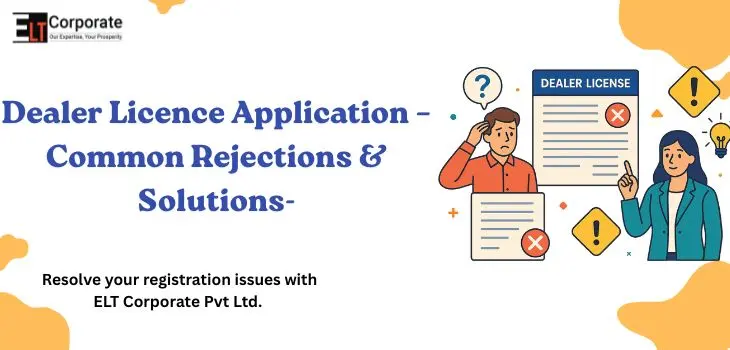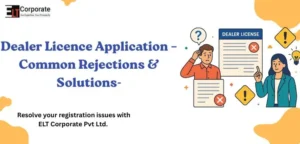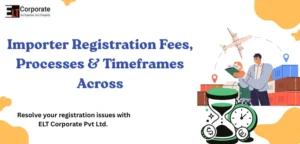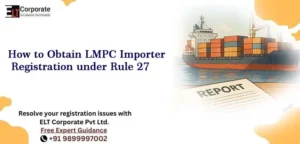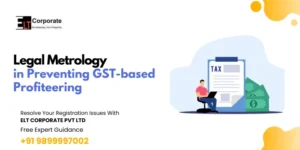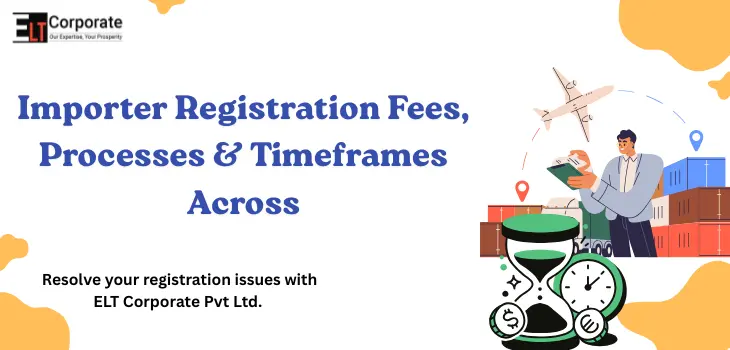A dealer license under Legal Metrology Act is important for everyone who is engaged in selling, distributing, or repairing in India. However, there are so many applications that get delayed or rejected because of simple errors, incomplete documentation, or a lack of compliance awareness. This blog will help you to understand the reason for common rejection in a dealer license application.
Understanding the Dealer Licence under Legal Metrology
A dealer license provides permission to a person or company to sell, distribute or deal in weights, measures or instruments regulated under the Legal Metrology Rules, 2011. It ensures that all measuring instruments sold in India meet the given level of accuracy, standards and marking requirements.
Common Reasons for Rejection in Dealer Licence Applications
1. Incomplete Application Form
Issue: Many applicants fail to fill all the required details, such as business category, type of equipment, or authorised signatory information.
Impact: Application is returned or kept pending until corrections are made.
- Fill every section accurately.
- Cross-verify that the name, address, and ownership details match your business registration documents.
- Attach all enclosures in the prescribed format.
2. Missing or Incorrect Documents
Issue: Applications often miss mandatory documents like GST, PAN, proof of premises, or test certificate.
Impact: Delays in verification or direct rejection by the Legal Metrology Officer.
- Prepare a complete document checklist before applying.
- Ensure all certificates (like calibration or model approval) are current and valid.
- Keep soft and hard copies ready for inspection.
Essential Documents Include:
- Application Form (prescribed by the State Legal Metrology Department)
- GST & PAN of the firm
- Address proof of the premises
- Ownership/rent agreement
- Model approval certificate (for instruments sold)
- Passport-size photo of proprietor/partners
- Valid manufacturer’s licence (if applicable)
3. Improper Business Premises or Display
Issue: The premises are not properly designated for dealing in weighing and measuring instruments.
Impact: Site verification fails; application is rejected.
- Ensure the premises are clearly identifiable and used solely for business.
- Display required signage and licence details visibly.
- Maintain a clean, organized workspace suitable for inspection.
4. Lack of Verification or Calibration Records
Issue: Dealers selling instruments without valid verification stamps face rejection or later cancellation.
- Sell only verified instruments stamped by the Legal Metrology Officer.
- Maintain up-to-date calibration and verification records for every instrument.
5. Inconsistent Ownership or Firm Details
Issue: The business name on documents differs from the name in application or invoices.
Impact: Creates legal discrepancies and suspicion during verification.
- Use consistent details across GST, PAN, bank account, and application.
- Any ownership change must be updated before applying.
6. Absence of Model Approval
Issue: Dealer applications for instruments without Model Approval Certificates are rejected under Section 22 of the Act.
How to Avoid:
- Ensure all weights and measures you deal with are approved by the Central Government or an authorized testing lab.
- Attach the model approval number and certificate with your application.
7. Non-Compliance with Display & Marking Rules
Issue: Dealers fail to comply with display requirements like manufacturer’s name, verification seal, or MRP.
- Follow the Legal Metrology (Packaged Commodities) Rules, 2011.
- Ensure each instrument bears:
- Manufacturer/importer name
- Year of manufacture/import
- Verification stamp & certificate
8. Delay in Renewal or Late Application
Issue: Many dealers apply for renewal after licence expiry.
Impact: Late fees, rejection, or even penalty.
- Apply for renewal at least 30 days before expiry.
- Keep reminder alerts to ensure timely filing.
Inspection & Verification Stage Errors
During inspection, officers may reject applications due to:
- Absence of instruments for testing or display.
- Untrained staff handling verification queries.
- Mismatch between actual premises and documents submitted.
Tip: Keep the premises ready and ensure the authorized person is present with original documents on the day of inspection.
Penalties for False or Misleading Information
Under Section 23 of the Legal Metrology Act, submission of false details or forged certificates may lead to:
- Rejection of licence
- Monetary penalty (up to ₹50,000 or more)
- Legal prosecution in severe cases
How to Avoid Rejection In Dealer License Application?
| Step | Action Item | Purpose |
| 1 | Verify business applicability | Ensure your trade falls under LM Act, 2009 |
| 2 | Collect and verify all required documents | Prevent return or rejection |
| 3 | Use prescribed application form | Avoid formatting or data mismatch |
| 4 | Submit to correct State/UT Controller | Avoid jurisdictional errors |
| 5 | Prepare premises for inspection | Pass site verification |
| 6 | Keep verification records updated | Show traceability and compliance |
| 7 | Renew on time | Maintain validity and continuity |
How ELT Corporate Can Help You To Avoid Common Rejection Points in Application?
At ELT Corporate, we provide end-to-end support for obtaining and maintaining your Dealer Licence under the Legal Metrology Act:
- Application filing and document verification
- Model approval and calibration guidance
- State-wise registration and inspection coordination
- Renewal tracking and compliance management
- On-site training for dealers and staff
FAQs
Q1. How long does it take to get a Dealer Licence?
Typically, 15–30 working days, depending on the state department and completeness of documents.
Q2. Can one licence cover multiple locations?
No. Each business premise requires a separate Dealer Licence under Legal Metrology.
Q3. Is there a validity period?
Yes, Dealer Licences are usually valid for 1 to 5 years, depending on the state policy.
Conclusion
Rejections in dealer license applications can usually be avoided with careful preparation and accurate documentation.
By understanding common mistakes and taking a compliance-first approach, dealers can gain approval faster and maintain credibility with regulators.
Need expert help with Dealer Licence application or Legal Metrology compliance?
Contact ELT Corporate today — your trusted partner for LMPC, Dealer, Manufacturer, and Repairer Licensing across India.

